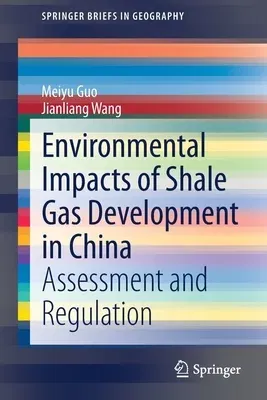This book features a comprehensive analysis of the development of shale
gas resources in China, with a focus on the potential environmental
impacts that may result. China has the world's largest shale gas
resources, which it is keen to develop to alleviate air pollution and
successfully transition to a low-carbon energy future. However, one
significant obstacle standing between the ambition and reality is the
potentially serious environmental impacts of shale gas production.
This book offers a systematic assessment of these potential impacts,
including the risk of water contamination, ecological disruption due to
the huge consumption of water and methane leakage. It presents valuable
first-hand data collected from the authors' fieldwork in Sichuan and
Chongqing and the latest information on China's current shale gas
operations and also includes a set of models and methods developed to
quantify the impacts.
It allows readers to gain a deeper understanding of environmental
regulatory management systems regarding shale gas production in China by
examining whether the existing monitoring, reporting and verification
(MRV) systems and environmental regulations can effectively prevent
adverse impacts from shale gas production.
Providing a detailed study of shale gas development in China based on an
unprecedented primary dataset, the book is a valuable resource for
scholars, engineers and students who are interested in the energy
development and environmental risks.

